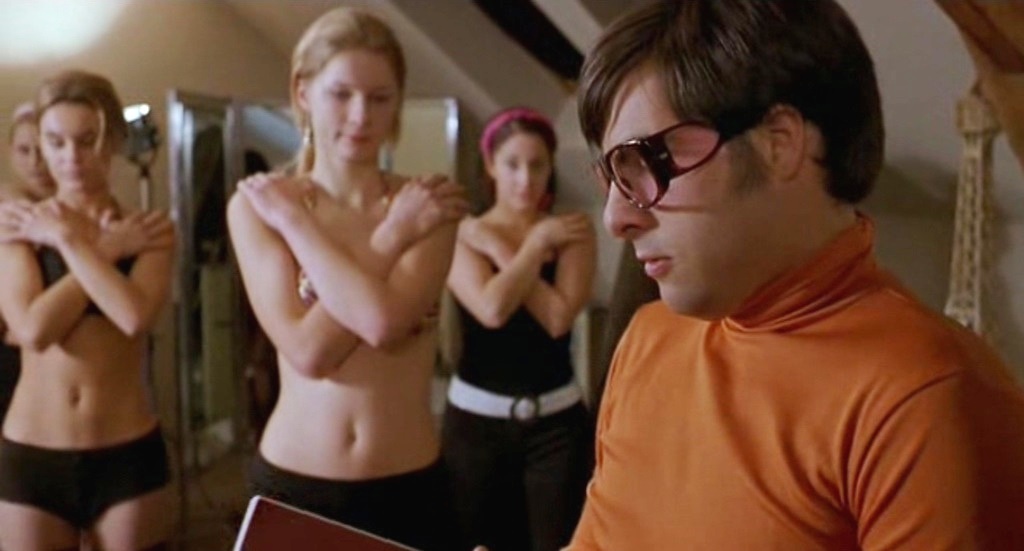
Roman Coppola’s ambitious debut feature CQ (2001) was one of the hot items that year. It’s self-deprecating humor and genuine affection for science fiction films of the sixties like Barbarella (1968) and The Tenth Victim (1965) made CQ appear hip and of its moment. Coppola channels James McBride and Jean-Luc Godard as best he can but is unable to capture any of the essential truths behind the musings of these earlier modernist filmmakers.
CQ deals with an editor’s trials and tribulations working of a science fiction epic in the sixties. He will rise to the level of director, ultimately helming the film, titled Codename: Dragonfly, to some cult success. CQ is littered with visual homages and references to the films of Mario Bava, Joseph Losey, Jean-Luc Godard, Roger Vadim, and Roger Corman. CQ is a kind of genre tapestry designed to celebrate, even as it mocks, the high camp and hyper-sexed qualities of sixties spectacles.
A lot of the humor regarding the behind the scenes battles for creative expression, control and money is really spot-on. Gérard Depardieu’s turn as the narcissistic auteur is really inspired and pretty hilarious. By contrast Jeremy Davis’ role as editor turned director feels more of the nineties than the sixties in terms of manner and convictions. That the protagonist is rendered as incongruous to the setting of CQ causes the film to suffer as all illusions give way and the suspension of disbelief withers.
The best parts of CQ come in the form of Robert Yeoman’s cinematography and the production design which captures perfectly the aesthetic of Roger Vadim. Billy Zane and Angela Lindvall, though underwritten as characters “off screen” really shine when lampooning one of the campiest of sixties sub-genres. These elements of CQ are what Coppola really excels at; the plastic and pre-fab.
A film about the making of a film in the sixties, especially this type of film, had so much potential. Coppola’s limited vision for the project which ultimately led to its critical backlash does a real disservice to the concept. It’s almost as if Coppola, in an effort to emulate Godard and McBride, restricted his own vision for the project.
